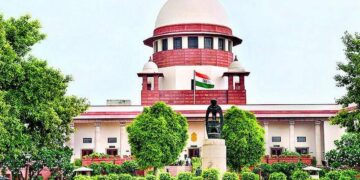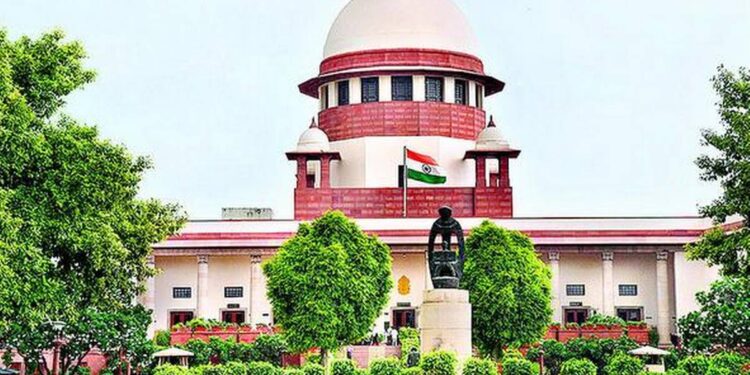India’s Supreme Court dismissed a plea from a Sri Lankan man accused of defrauding Indian banks of ₹140 crore, stating firmly that India cannot be treated like a “Dharamshala” (a refuge) for those who fail to repay massive loans. The court emphasized the importance of accountability and made it clear that the country will not provide safe harbor to foreign nationals evading financial responsibilities.

Supreme Court Denies Sri Lankan Tamil’s Plea: “India Not a Dharamshala”
Introduction
In a significant ruling on May 19, 2025, the Supreme Court of India dismissed a plea by a Sri Lankan Tamil national seeking refuge in India, asserting that the country is not a “dharamshala” (free shelter) for refugees from across the globe.
The bench, comprising Justices Dipankar Datta and K Vinod Chandran, emphasized India’s challenges in managing its vast population of 140 crore (1.4 billion) and declined to interfere with the petitioner’s detention and deportation proceedings.
The petitioner, identified as Subaskaran @ Jeevan @ Raja @ Prabha, was arrested in 2015 by Tamil Nadu’s Q Branch on suspicion of being associated with the Liberation Tigers of Tamil Eelam (LTTE), a banned terrorist organization. In 2018, he was convicted under Section 10 of the Unlawful Activities (Prevention) Act (UAPA) and sentenced to 10 years in prison. The Madras High Court later reduced his sentence to seven years in 2022 but directed that he be deported immediately upon completion of his term and remain in a refugee camp until his departure.
Table of Contents
The petitioner argued that he entered India legally on a visa and feared for his life if returned to Sri Lanka due to his past association with the LTTE. He claimed that his wife and children were settled in India and that he had been detained for nearly three years post-sentence without any progress on deportation proceedings.
Justice Dipankar Datta questioned the petitioner’s right to settle in India, stating, “Is India to host refugees from all over the world? We are struggling with 140 crore. This is not a dharamshala that we can entertain foreign nationals from all over.” The court emphasized that the petitioner’s detention was in accordance with the law and did not violate Article 21 of the Constitution, which guarantees the protection of life and personal liberty. Furthermore, the court clarified that Article 19, which provides certain fundamental rights, including the right to reside and settle in India, applies exclusively to Indian citizens.
When the petitioner’s counsel highlighted the threat to his life in Sri Lanka, the bench suggested that he consider seeking refuge in another country, reinforcing the stance that India cannot accommodate refugees from all over the world
This ruling underscores India’s stringent approach to asylum seekers, particularly those with past associations with banned organizations. It reflects the judiciary’s emphasis on national security and legal procedures over humanitarian considerations in cases involving foreign nationals with criminal convictions.
The Supreme Court’s decision to dismiss the Sri Lankan Tamil’s plea reinforces India’s position on handling asylum requests, especially from individuals with contentious backgrounds. By asserting that India is not a “dharamshala,” the court highlighted the nation’s limitations in accommodating refugees amidst its own demographic and security challenges.
READ ALSO…..Indian Army Demonstrates How Air Defence Thwarted Pakistan’s Missile and Drone Strikes on Golden Temple 2025















 Categories
Categories









